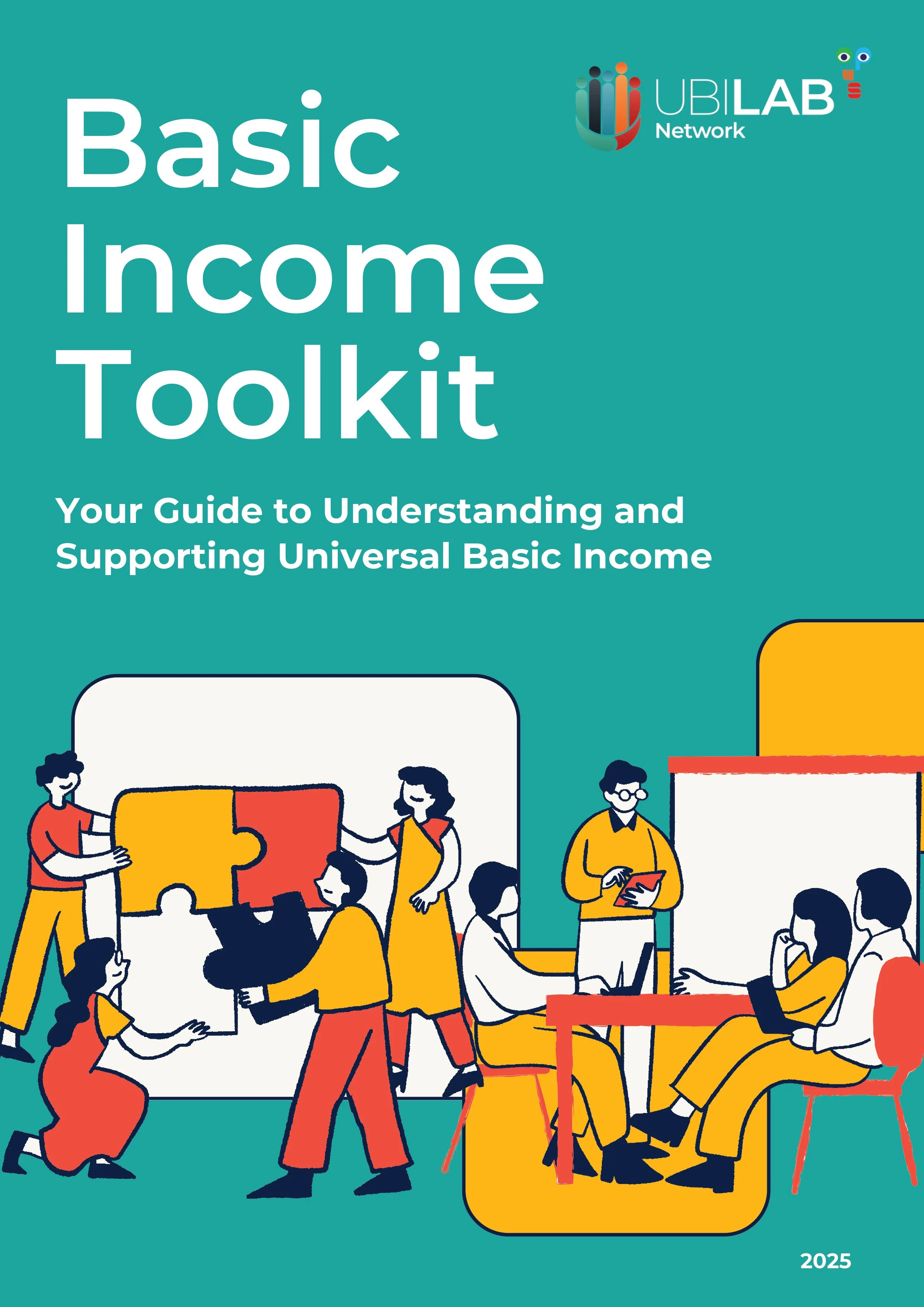
Take Action: Download our Universal Basic Income Toolkit
Now more than ever, economic security isn’t a luxury - it’s a must. That’s why we’ve created the UBI 101 Toolkit: your gateway to understanding, sharing, and supporting Universal Basic Income.
We are living through a time of deep uncertainty, with rising poverty, widespread anxiety, economic instability, and climate breakdown. Too many people are just surviving when they should be thriving.
Across the world, UBI has been shown to reduce poverty, improve mental health, and empower people to take part in their communities. It gives people the breathing space to care for family, start a business, contribute creatively, or simply live with dignity.
We believe that change is not only possible—it’s urgent. This toolkit gives you the knowledge and power to be part of the movement for UBI and help build a fairer, more secure future for everyone.
Here’s a quick snapshot of what you’ll find:
An introduction to UBI — clear, jargon-free, real.
Stories of change to demonstrate the powerful impact of UBI on individuals and communities
Myth‑busting FAQs to answer your burning questions
More about the UBI Lab Network and our 20 grassroots Labs in 7 countries around the world
Taking action: simple steps you can take to be part of the change
Meet the UBI Lab Network
The UBI Lab Network is a citizen-led, global movement of campaigners, researchers and volunteers, working together to explore how UBI could transform society from the ground up.
We’re not just theorising - we’re organising.
In the UK, our grassroots Labs have helped pass over 30 council motions calling for UBI trials. We played a key role in launching the country’s first-ever basic income pilot in Wales. We’ve hosted parliamentary briefings, worked alongside devolved governments, and built alliances in towns, cities, and communities of interest.
With more than 300 members in 7 countries, our strength lies in the power of ordinary people coming together to demand a fairer economy.
When you download the toolkit, you’re not just learning about UBI—you’re joining a movement that’s already reshaping what’s possible.
Fill in your details to get the Toolkit
If you don’t see a form below please refresh the page


